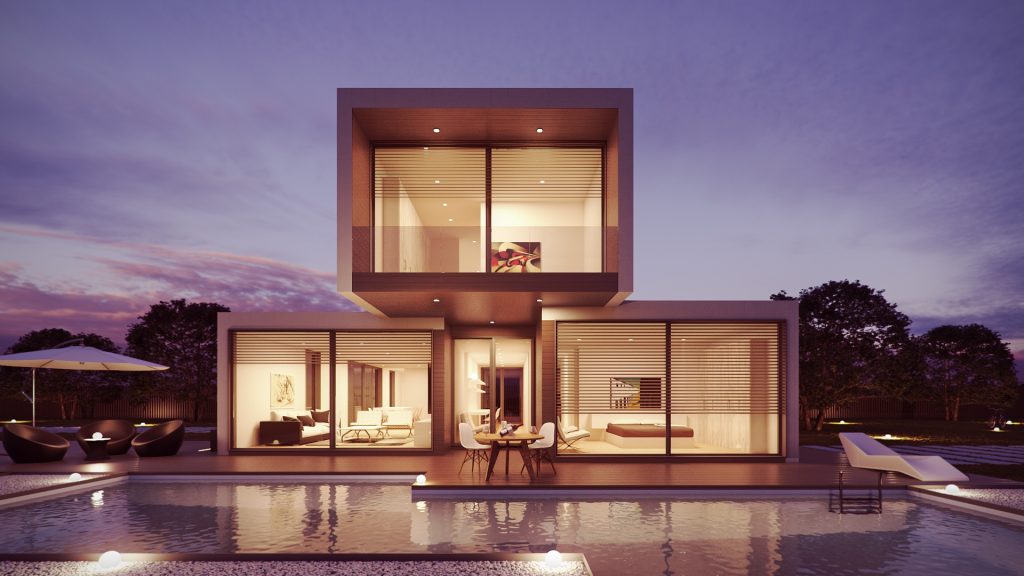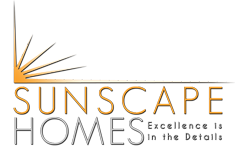Luxury home building is undergoing a major transformation, driven by advancements in sustainability, technology, and personalized design. Modern homeowners are seeking not only aesthetic appeal but also smart functionality, energy efficiency, and wellness-focused spaces. As a result, the industry is embracing innovative materials, automation, and eco-friendly construction methods to redefine upscale living.

In this article, we explore the most influential trends shaping the future of luxury home construction, including sustainable building techniques, cutting-edge smart home technology, wellness-focused design, flexible living spaces, and personalized customization. These trends are setting new standards for high-end residential architecture, ensuring that luxury homes remain both elegant and forward-thinking.
Sustainable Luxury Homes
The Shift Toward Eco-Friendly Construction
Sustainability has become a top priority for modern luxury homeowners. As climate change concerns grow and energy costs rise, eco-conscious homebuyers are looking for greener alternatives. Sustainable luxury homes incorporate high-efficiency systems and environmentally responsible materials to minimize their carbon footprint without compromising on elegance.
Key Sustainable Features
- Solar Power and Energy Efficiency
- Solar panels and battery storage systems allow homes to operate with minimal reliance on the grid.
- Smart energy management systems optimize electricity usage to reduce waste.
- Net-Zero Energy Homes
- Designed to produce as much energy as they consume, using renewable energy sources.
- Includes high-performance insulation, energy-efficient windows, and smart climate control systems.
- Passive Design Strategies
- Homes built with passive solar heating and cooling to reduce reliance on HVAC systems.
- Optimized window placements, natural ventilation, and energy-efficient building materials.
- Green Roofs and Living Walls
- Rooftop gardens improve insulation and reduce stormwater runoff.
- Living walls enhance air quality and bring natural beauty indoors.
By prioritizing these features, luxury homes can achieve long-term sustainability while maintaining a high standard of living.
Smart Home Technology
The Rise of Intelligent Living Spaces
Technology is revolutionizing luxury home construction, making residences more intelligent, efficient, and secure. Smart home automation allows homeowners to control lighting, security, temperature, and entertainment systems with voice commands or mobile apps.
Key Smart Home Innovations
- AI-Powered Home Automation
- Smart assistants (e.g., Amazon Alexa, Google Home) seamlessly manage daily tasks.
- AI-driven systems adjust lighting and climate based on occupancy and preferences.
- IoT-Enabled Appliances
- Refrigerators that suggest recipes based on stocked ingredients.
- Smart ovens that can be controlled remotely for precise cooking.
- Advanced Security Systems
- Facial recognition and biometric access provide heightened security.
- AI-powered surveillance cameras detect unusual activity in real time.
- Integrated Climate Control
- Zoned heating and cooling systems optimize energy efficiency.
- Smart thermostats learn user habits and adjust settings accordingly.
These innovations enhance convenience, security, and efficiency, making luxury homes more intuitive and user-friendly than ever.
Wellness-Centric Design
Prioritizing Health and Well-Being
Today’s luxury homeowners are prioritizing wellness and holistic living. The integration of wellness-focused design elements ensures a healthier and more comfortable indoor environment.
Key Wellness Features
- Biophilic Architecture
- Incorporates natural materials like wood, stone, and greenery to create a calming ambiance.
- Maximizes natural light to improve mood and productivity.
- Air and Water Purification Systems
- Advanced air filtration removes pollutants and allergens from indoor spaces.
- Whole-home water purification ensures clean and safe drinking water.
- Circadian Lighting
- Adjustable lighting systems that mimic natural daylight cycles.
- Enhances sleep quality and overall well-being.
- Wellness Rooms and Meditation Spaces
- Dedicated spaces for yoga, meditation, and relaxation.
- Features such as aromatherapy, soundscapes, and calming color palettes.
By incorporating these elements, luxury homes provide an environment that supports both physical and mental well-being.
Flexible Living Spaces
Adapting Homes to Modern Lifestyles
Luxury home design is becoming more adaptable to accommodate the changing needs of homeowners. Multi-functional spaces allow residents to customize their living environments for work, relaxation, and entertainment.
Key Flexible Design Concepts
- Multi-Functional Rooms
- Convertible home offices that double as guest bedrooms.
- Expandable dining areas that transform into entertainment lounges.
- Seamless Indoor-Outdoor Living
- Large glass doors and retractable walls connect interior and exterior spaces.
- Outdoor kitchens, fireplaces, and entertainment areas enhance usability.
- Home Gyms and Entertainment Hubs
- Private fitness studios equipped with high-end workout machines.
- Custom home theaters with immersive sound and visuals.
- Smart Storage Solutions
- Hidden storage compartments and modular furniture for space optimization.
- Walk-in closets with automated organization systems.
Flexible living spaces allow luxury homes to evolve with homeowners’ changing lifestyles, ensuring long-term functionality and comfort.
Customization & Personalization
Bespoke Designs for Unique Homeowners
Luxury homeowners desire residences that reflect their personal tastes and lifestyles. Customization is at the forefront of modern high-end home construction, enabling clients to create one-of-a-kind spaces.
Key Personalization Trends
- High-End Material Selection
- Exotic woods, rare marbles, and custom metalwork add sophistication.
- Sustainable yet luxurious materials such as reclaimed wood and eco-friendly concrete.
- Artisanal Craftsmanship
- Hand-carved doors, custom cabinetry, and detailed millwork.
- Bespoke furniture and decor pieces crafted by artisans.
- Virtual Reality & 3D Modeling
- Clients can visualize their homes before construction begins.
- Digital walkthroughs allow real-time design modifications.
- Personalized Smart Features
- Voice-controlled room settings that adjust based on individual preferences.
- Custom-built wine cellars, spa retreats, and game rooms.
By embracing customization, luxury homes offer a unique and personalized experience that goes beyond standard high-end living.
Conclusion
Luxury homebuilding is rapidly evolving, blending sustainability, technology, wellness, and customization to meet the demands of modern homeowners. Emerging trends such as net-zero energy homes, AI-powered smart technology, biophilic design, and flexible living spaces are setting new standards for elegance and functionality.
As innovation continues to shape the industry, luxury homes will become more adaptive, efficient, and personalized, ensuring that homeowners enjoy a seamless blend of comfort, convenience, and timeless beauty. Whether through sustainable building practices, cutting-edge automation, or bespoke design elements, the future of luxury home construction is more dynamic and exciting than ever.
By staying ahead of these trends, homeowners and builders can create spaces that not only reflect contemporary lifestyles but also stand the test of time.
